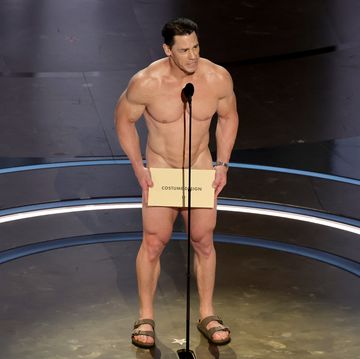In 2013, Steven Spielberg and George Lucas told an all-ears crowd that Hollywood should brace for an "implosion."
Mega-sized blockbusters were too big and too common. Small movies, the kind that filled the gaps between our fluffier entertainment 20 years ago, had virtually disappeared. Spielberg said, in this era, even he had trouble selling more grounded film ideas to studios. His Oscar-winning drama Lincoln almost wound up as an HBO movie. In the minds of the two industry pioneers, there was no way the current model could sustain itself.
"Three or four or maybe even a half-dozen mega-budget movies are going to go crashing into the ground, and that's going to change the paradigm," Spielberg said.
Two years later, the bubble hasn't popped.
A sequel to The Avengers proved superheroics are a pillar of mainstream interest. In another corner of the market, smaller movies looking outside the over-harvested "young white guy" demographic (Pitch Perfect, Straight Outta Compton) towered over softball action movies. And Jurassic World, produced by Spielberg, chowed down on Millennial nostalgia to become the third-highest grossing movie of all time.
Expect at least 18 more of those before the theoretical blockbusterpocalypse.
Even as giant movies dominate and movie-studio schedules fill up with franchises—between Marvel and DC Comics, there are currently 27 adaptations on the release calendar through 2020—Spielberg remains skeptical.
As the director tells the AP in a new interview out today, look no further than our history to see the future.
"We were around when the Western died and there will be a time when the superhero movie goes the way of the Western. It doesn't mean there won't be another occasion where the Western comes back and the superhero movie someday returns. Of course, right now the superhero movie is alive and thriving. I'm only saying that these cycles have a finite time in popular culture. There will come a day when the mythological stories are supplanted by some other genre that possibly some young filmmaker is just thinking about discovering for all of us."
Spielberg is correct: Movie Westerns died out.
If you think comic-book movies dominate today's landscape, imagine the 1950s, when nearly 100 Westerns rode on to traditional and B-movie screens each year. By the 1990s, the stampede died down. Not even Clint Eastwood's Unforgiven or the earnest action of Wyatt Earp could combat a dying interest. Tongue-in-cheek inversions like Maverick and The Quick and the Dead—good movies in their own right—were a final dying breath.
By the 2000s, we were left to scattered successes (Django Unchained, the Coen Bros.' True Grit, 3:10 to Yuma) and Kevin Costner passion projects (Open Range). A once-prosperous genre is now the occasional tumbleweed blowing through theaters.
Could it happen to the modern-day tentpole? It would be more difficult.
The Western grew past novels and radio drama to become the premiere template for golden-age Hollywood. And it kept evolving as American cinema tossed and turned through the '60s and '70s.
Sergio Leone designed his own Western language in the hills of Italy, with Eastwood as his Man with No Name. Sam Peckinpah dissolved the moral integrity of stock characters to the point where villains and heroes blurred into one—and performed his mad science under a studio banner. Even John Ford clocked enough hours in Monument Valley to erect, dismantle, and rebuild what we know of today as The Western. The Searchers is a far cry from Stagecoach.
For "mythological stories" to fall, they'll have to be pushed to their creative breaking point. Though with current blockbuster expectations—brought on by risk-averse executives, demanding shareholders, and audiences who come to the table with bigger and bigger demands—and the advent of VOD and streaming services, there's room for future Leones and Peckinpahs to make films outside the studios and outside the in-demand genre.
Superhero movies aren't metamorphosing toward death's door like the Western. Maybe The Dark Knight is our comic-book Once Upon a Time in the West, maybe Kick-Ass subverted the mold in an Unforgiven fashion. But superhero movies won't go out in a Western-style blaze of glory without a fire to ignite it. When visionary filmmakers like Edgar Wright and Michelle MacLaren are pushed away from their respective superhero movies (Ant-Man and Wonder Woman, respectively) over "creative differences," Hollywood implies that it isn't ready to break the mold.
More likely than Spielberg's implosion? A future where we coexist with serviceable, $300-million blockbusters and let our innovators go to town in the trenches of independent film.
If only superhero movies would go the way of the Western.
This article was oriinally published on Esquire.com
***
MORE CULTURE:
Daniel Craig Is Esquire's October Cover Star
The Final Word On Whetehr Idris Elba Should Play James Bond
Why Rectify Should Be Your Next TV Show
***













